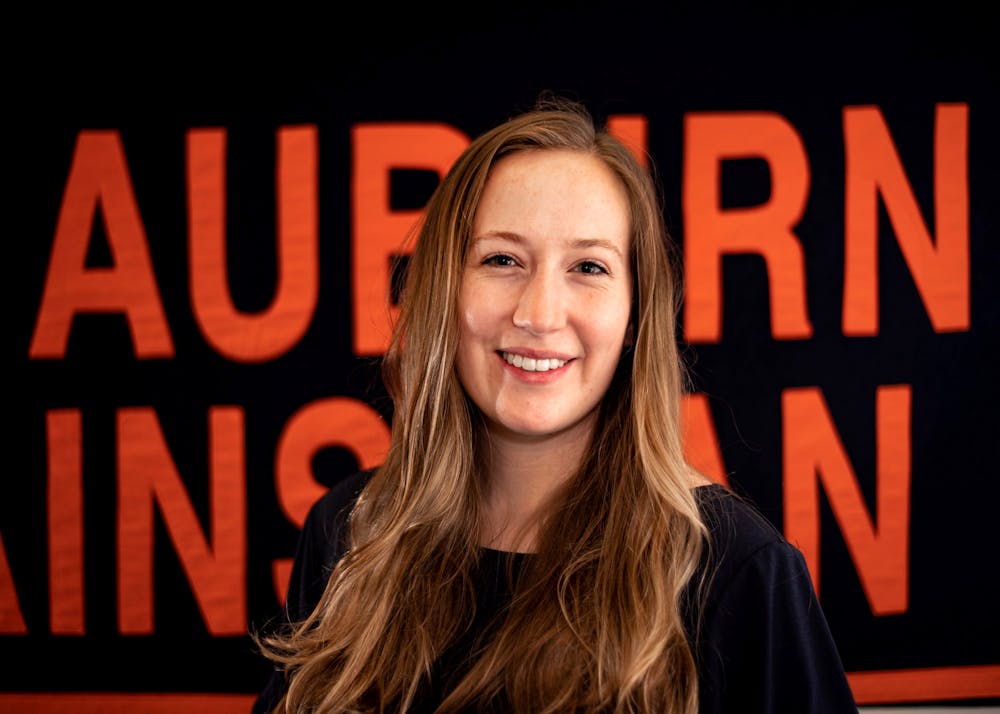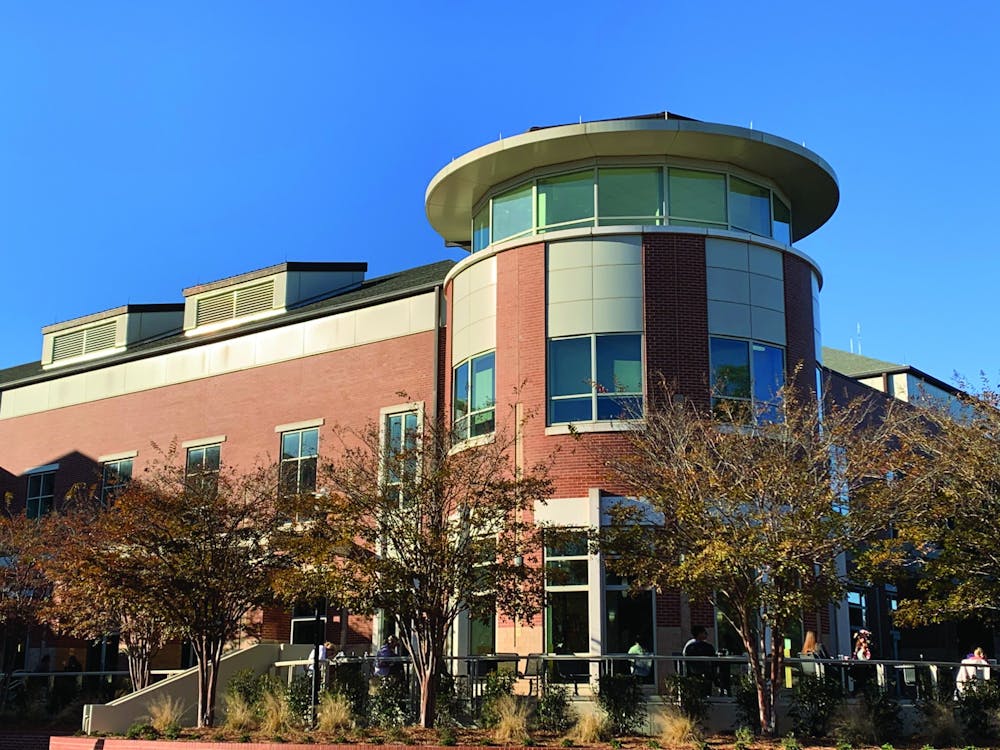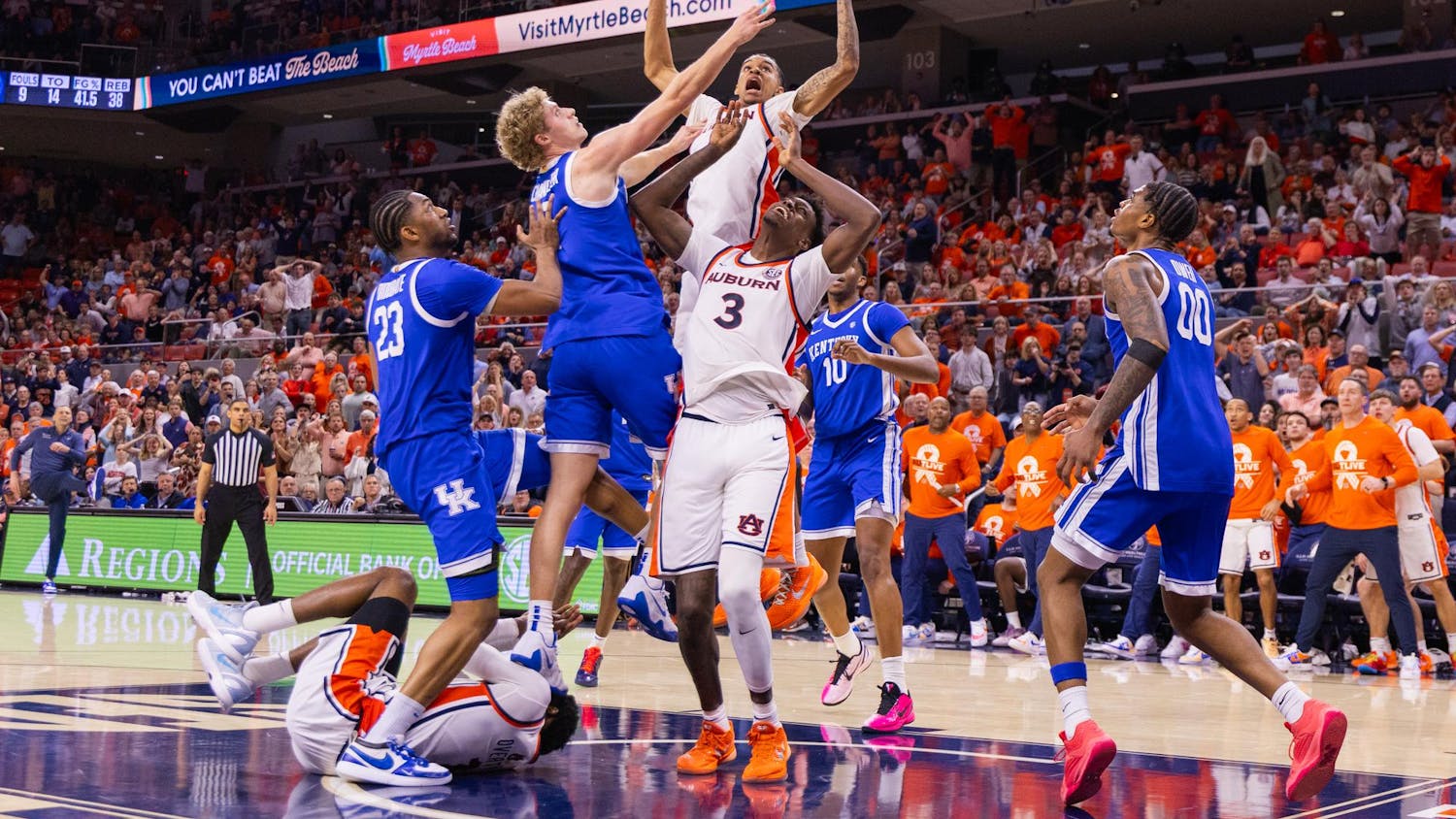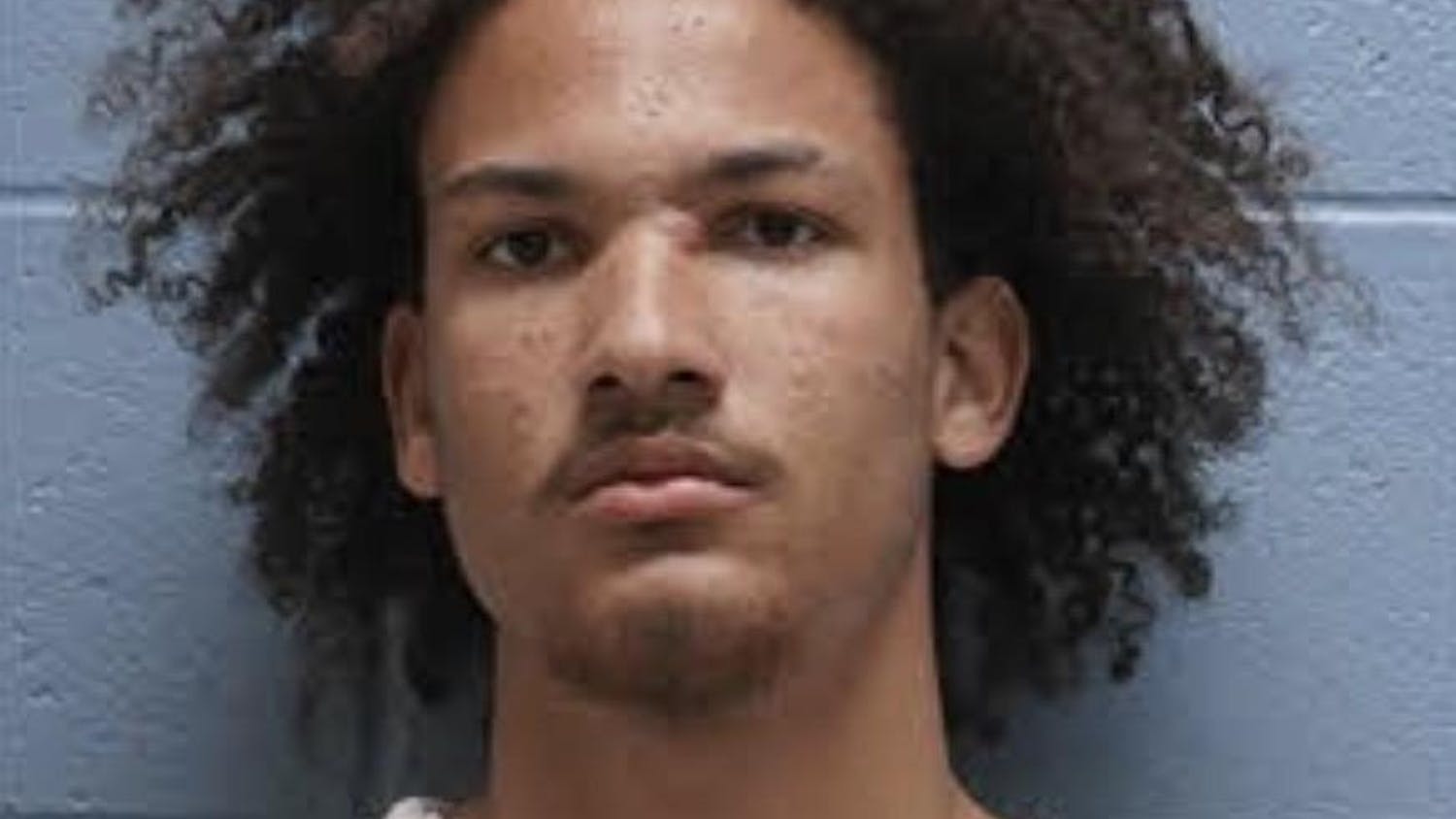The Student Senate voted not to confirm the appointment of Stephen Morris, senior in political science, to the position of chief justice of the Student Government Association’s judicial branch on Monday.
The decision came after over an hour of debate, including the reading of some of Morris’ tweets.
Tweets cited in the Senate meeting included the following:
Several students and senators voiced their concerns about the candidate.
Brandan Belser, senator for the College of Liberal Arts, opened the debate with his statement that “a candidate on this slate of selections is unfit to serve," specifically referencing when Morris “referred to humans, a human population, as ‘inhumane animals.’”
“I just wanted to say that after seeing some of the things that one candidate has said, I don’t have the confidence that if something that were controversial to come up, that it would be unbiased,” said Sydney Williams, junior in apparel merchandising and senator for the College of Human Sciences. “Since this is a confirmation and not something that the student body can elect, I really think it is Senate’s job to look out for the student body.”
A few senators, as well as Morris himself, defended the Tweets as expressions of personal and political beliefs.
“My concern only comes from what a dangerous precedent it would set if we were to strike down this confirmation on the basis of political beliefs,” said Graf Sullivan, junior in civil engineering and senator for the College of Engineering.
Coleman Turnipseed, junior in political science and senator at-large, also mentioned a “dangerous precedent,” saying, “I don’t believe that the political views of the candidate have anything to do with his ability and qualifications to fulfill the role of chief justice.”
Black Student Union president and junior in chemical engineering Mya Strickland said “even allowing this to get this far” was “disheartening.”
“I keep hearing political views being brought into this, and I feel like it’s just kind of being diminished to that by using that terminology, when we’re actually just talking about human decency,” Strickland said.
Morris claimed that his legal writing classes and service work, including work with Best Buddies and the Honors College Week of Service, made him qualified for the position.
“I’m currently serving as the vice president of Best Buddies, and we actually promote inclusion for individuals with intellectual and developmental disabilities,” Morris said. “I’m all about trying to include people. I used to get left out of plenty of things in middle school and high school, so I try to include people.”
Morris defended his Tweet about escaping poverty with his Week of Service experience, saying after participants “go serve underprivileged communities during the day,” they “go and try to educate participants on the causes, effects and otherwise of poverty” with guest speakers and films.
“I was born with plentiful opportunities to give to those less fortunate around me,” Morris said. “Memphis (Morris' hometown) is a very poor city. … There’s lots of opportunities to serve. As the president of the Wilson Society, I wrote a grant proposal to send students from two inner-city high schools, and those being almost all Black, … I sent them to Model United Nations and Youth and Government conferences.”
Morris also cited his friendship with “one senator,” seemingly referring to Belser, “to demonstrate my kindness and nonbias.” Morris said he made no “arguments, insults or otherwise” to the senator when talking about their apparently conflicting beliefs.
Another topic of debate was Morris’ views on transgender people.
“I have never referred to anyone by the incorrect pronouns,” he said.
However, he reiterated his stance as expressed in his social media.
“My sincerely held religious belief is that God created us male and female,” he said. “I believe in human biology. I believe in science.”
Morris closed his argument by defending his Tweets as free speech and also warning against that “dangerous precedent” mentioned by a few senators.
“It is your duty to protect my constitutional right to free speech and freedom of religion and whatnot,” Morris said.
He also cited the Auburn University anti-discrimination policy, which defines discrimination as “conduct directed at a specific individual or a group of identifiable individuals that subjects the individual or group to treatment that adversely affects their education or employment because of their Protected Status.”
“I kind of believe that you all are discriminating against my sincerely held political and religious beliefs,” Morris said. “I’ve never discriminated against anyone.”
Molly Boudreaux, senior in industrial and systems engineering and executive vice president for outreach, joined Belser in rebutting Morris’ arguments before the vote.
“I also think if we’re talking about qualifications, I would caution you all to, like he said, think objectively about qualifications,” Boudreax said. “Being awarded something from a man who’s Black," Boudreaux continued, referencing Morris' Be the Creed nomination by a Black faculty member, "is not a qualification. Having worked in the past with an organization that works for inclusiveness and with people that have intellectual disabilities does not make you inclusive as a whole. Working with one marginalized population does mean that you are effectively able to advocate for all marginalized populations. If you have friends who are people of color, if you have friends with disabilities, … that’s not a qualification.”
Boudreax defined the vote not as a decision on free speech, but “to decide, as a Senate, if you have the confidence in this person to serve in this role.”
While Hayden McDonald, junior in accounting and senator for the College of Engineering who served on the selection committee, said he thought Morris was the most qualified candidate for the position, Allen Li, senior in political science and another member of the selection committee, disagreed.
“I definitely thought there were other qualified candidates that could fill the role of chief justice in a more effective way,” Li said, adding later that he “advised Rett [Waggoner] that there was, in my opinion, a better candidate.”
However, the decision was up to SGA President Waggoner and, later, the Senate, which chose to deny the pick for chief justice.
Do you like this story? The Plainsman doesn't accept money from tuition or student fees, and we don't charge a subscription fee. But you can donate to support The Plainsman.

Emma Kirkemier, junior in English literature with a minor in journalism, is the campus reporter for The Auburn Plainsman.





